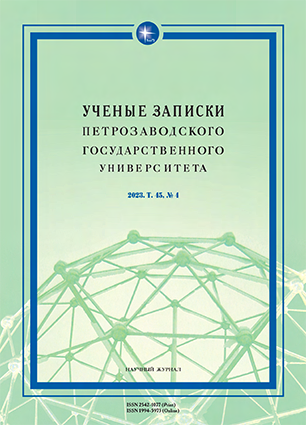Средства выражения императивности в тексте «Устава Благочиния» 1782 года
LANGUAGE MEANS OF EXPRESSING IMPERATIVENESS
IN THE TEXT OF THE 1782 DEANERY CHARTER
Author(s): Anna Andreevna KulebakinaSubject(s): Economy, Applied Linguistics, Eastern Slavic Languages
Published by: Петрозаводский государственный университет
Keywords: imperativeness; charter; history of business Russian; eighteenth-century business language; Catherine the Great’s era;
Summary/Abstract: The tasks of the official documents of the XVIII century included the regulation of the employees’ activities in a particular sphere of public life and the transmission of state values. This was the reason for the careful selection of linguistic means. In the era of Catherine the Great, the language of documents was changed. These changes were associated with moving away from mandative language of the XVII century, on the one hand, and with a stronger influence of European languages, on the other hand. The article examines linguistic means for expressing imperativeness and analyzes its usage cases in the text of the 1782 Deanery Charter. The performed analysis demonstrates a linguistic convergence of the text of the Charter with European language models. Along with the independent infinitive, imperativeness is expressed through verbs in the present tense, modifiers dolzhen (must) and objazan (be obliged), and a two-part sentence model often found in the text of the Charter. Some syntactic constructions that were widely used in the era of Peter the Great were becoming less common and were being replaced, and the tone of the document became softer. It is assumed that the reasons for these changes could be due to the influence of the sources underlying the Charter, as well as the influence of the philosophical and legal ideas of enlightened absolutism.
Journal: Ученые записки Петрозаводского государственного университета
- Issue Year: 45/2023
- Issue No: 4
- Page Range: 41-47
- Page Count: 7
- Language: Russian

